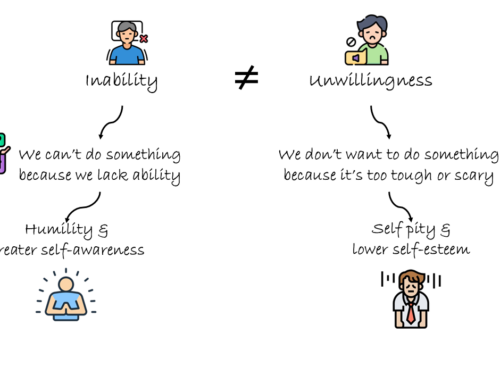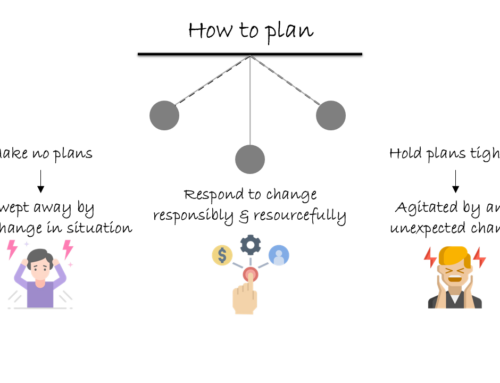Who is at fault = who is responsible? – Suppose while we are working from home, we see from a window our neighbor’s son playing with a ball. While following the ball, he runs out from the lawn onto the street. We realize that he might be in danger, but we neglect that possibility and continue our work. A few moments later, we hear a car’s brakes screeching and that boy screaming. Alarmed, we rush out and find that the car has hit the boy. Though the police won’t consider us legally culpable for the accident, we would still feel morally responsible: “If only I had warned him or alerted his parents …”.
Consider another situation where someone else is at fault because they are ill-intentioned. Suppose we see a charitable friend walking down a high-crime road carrying a lot of money. Knowing that they are likely to be robbed, we will consider warning them. If we don’t warn them and they end up robbed, would we be responsible? Legally, no. Morally, yes. Though the robbers are culpable, it is still our responsibility to do what we can to prevent it.
When something bad happens to us, we may get caught in arguing how it was not our fault. If we thus indulge in self-pity, resentment and overall negativity, we unwittingly embrace an ignorant self-defeating mentality (18.35). As long as we are obsessed with proving how we are not at fault, we disempower ourselves because we don’t do anything to fix the situation.
Do we have a more empowering alternative? Yes, we can take responsibility to do whatever positive things we can, thereby improving the situation or at least our disposition in facing that situation.
One-sentence summary:
Just because something is not our fault doesn’t mean it is not our responsibility; focus on improving the situation, not on proving it is not our fault.
Think it over:
- Are there any situations where we feel morally responsible even if it’s not our fault?
- Obsessing over proving we are not at fault disempowers. Explain.
- Focusing on how we can take responsibility empowers. Explain.
***
18.35: And that determination which cannot go beyond dreaming, fearfulness, lamentation, moroseness and illusion – such unintelligent determination, O son of Prutha, is in the mode of darkness.
To know more about this verse, please click on the image
Explanation of article:
Podcast:






Thank you pr for sharing this wonderful insight.
Happy to be of service.